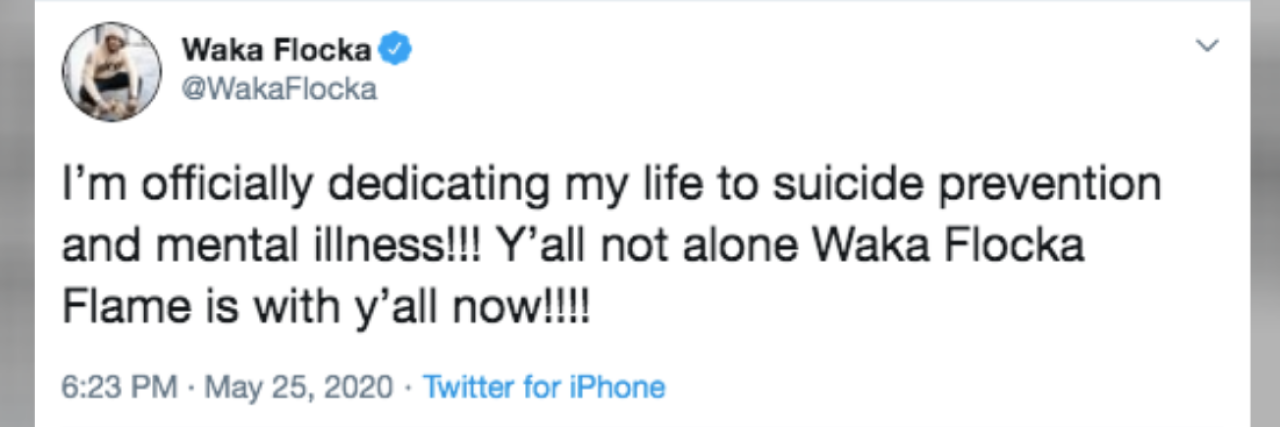A Letter to Waka Flocka: Welcome to the World of Suicide Prevention
Editor's Note
If you’re looking for creative inspiration, check out the Daily Inspirations group on The Mighty.
Welcome Waka Flocka,
After seeing your tweet declaring your dedication to suicide prevention, and the one that followed opening up about the death of your own brother, I replied and welcomed you to the suicide prevention community — but 280 characters wasn’t enough space to give you a proper welcome.
Welcome to the team @WakaFlocka. I've been in suicide prevention for 25 years. This is a passionate group of folks who work hard and play even harder. As President of the American Association of Suicidology I get to see the breadth of suicide prevention every day. #AAS365.
— Jonathan Singer (@socworkpodcast) May 26, 2020
Losing a loved one to suicide is something no one should have to go through. You are not alone, nor was your brother alone in his pain. Your brother’s death and the deaths of so many more brothers and sisters, moms and dads, daughters and sons, are not being taken as seriously as those who die from other leading causes of death — this is unjust and we are sorry.
We know that this adds to an already enormous and complicated grief. Sometimes connecting with others who have been through the same experience is the only time when you feel like someone truly understands. That’s one of the reasons why the suicide prevention field is a partnership between people who have lost loved ones, people with lived experience of suicidal thoughts and behaviors, people who are clinicians, researchers, crisis workers, and friends and family.
You have no idea how it feel to wanna your own life man… my lil brother took his own life man.. and I deal with this fact every birthday because his birthday a day after mines June 1st. This year I’m officially accepting the fact that he’s in a better place #LLKayo
— Waka Flocka (@WakaFlocka) May 26, 2020
I thought you should know the good and the bad news about suicide prevention.
The good news is that there are hundreds, maybe thousands, of initiatives to give people purpose and reasons for living and support people after a suicide death. The American Association of Suicidology is working with people and organizations in every sector of society from frontline health workers and crisis centers to artists, construction workers and people in the food industry, to schools, tech companies, law enforcement and the military to name a few. If you want to know about some of these existing initiatives, or want to find out if something isn’t being done, we’ll be happy to put you in touch with the experts.
Some of our top priorities are:
— Educating the public on what systems are in place and what effective treatment looks like
— Understanding what moves people from thinking about suicide to acting
— Addressing the racial and economic inequities in housing, employment, education, health care and the criminal legal system that reinforce the idea that some people are not as valued as others.
— Substantially increase funding for collaborative research on what works for whom under what circumstances
— Ensuring that no matter where someone is, whether house of worship, workplace, school or home, if they ever have the thought, “This world wouldn’t miss me if I were gone,” that there would be people who could recognize and respond and let them know that their life is worth living.
Thank you for dedicating your life to suicide prevention and mental well-being. We are so sorry for your loss.
With honor and respect,
Jonathan Singer
President, American Association of Suicidology

